Alex Hafner plays astronaut Santiago ‘‘Santi’’ Gonzalez Garcia in the K-drama “When the Stars Gossip”, alongside the Korean stars Lee Min-ho, Gong Hyo-jin, and Oh Jeong-se. Before joining the cast of this successful Korean science-fiction series, Hafner worked on other notable projects, including Ridley Scott’s 2013 film “The Counselor” starring Penélope Cruz, Cameron Diaz, Brad Pitt, Javier Bardem and Michael Fassbender. In this interview, Hafner talks about his international background and shares his experience on set while shooting “When the Stars Gossip”, including some memorable moments with Korea's first and only astronaut, Dr. Soyeon-Yi, how he started calling Gong Hyo-jin “Nuna” (big sister), and other standout details that made the production unforgettable. His insights highlight the deep cultural exchange and the lasting impact of this unique project.
This interview was conducted via email between January 9 and January 21, 2025.
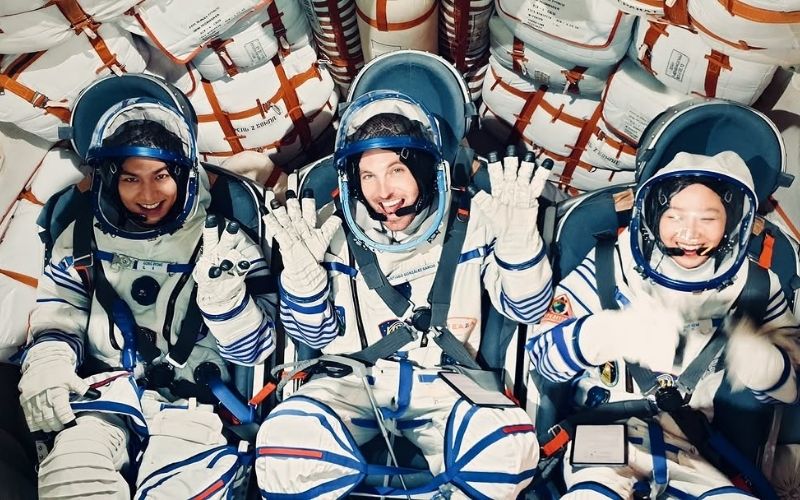
Could you please briefly introduce yourself?
Hello, I’m Alex Hafner, a Spanish-American actor with an international background that has shaped both my personal and professional outlook. My experiences living and working in different countries have given me the opportunity to speak several languages—English, Spanish, German, and French. Most recently, my time working on “When the Stars Gossip” has inspired me to begin learning Korean. This project has been a profound cultural exchange, and I’m determined to bridge linguistic gaps to connect more deeply with the incredible people I have encountered on this journey. I am passionate about storytelling that transcends borders and explores the shared humanity that brings us together.
How did you feel when you were first approached about playing Santiago? What aspects of his character intrigued you the most?
When I was first approached, I felt both excitement and gratitude—it’s not every day that you are offered a role in a Korean drama, especially one as ambitious as “When the Stars Gossip”. What intrigued me most about Santiago was the balance between his competence and his emotional vulnerability. He is an accomplished astronaut, but beneath his professional exterior is someone grappling with profound questions about connection, ambition, and belonging. That complexity made him feel authentic and relatable, and I couldn’t wait to dive into his world.
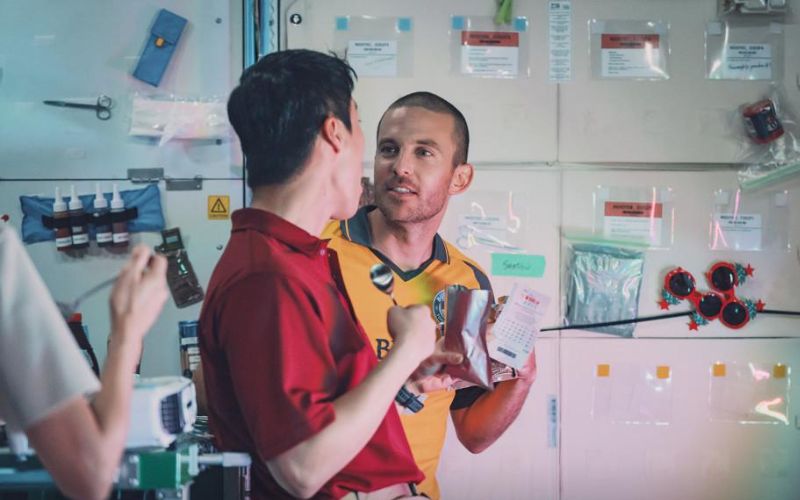
What kind of preparation did you do to get into Santiago’s mindset, especially with the unique challenges of portraying life on a spaceship?
Preparing for Santiago involved both technical research and emotional reflection. I immersed myself in documentaries about astronauts to understand their routines, discipline, and mindset. Physically, I practiced maintaining a fluid, weightless posture to mimic zero gravity, which required retraining my body to move with deliberate ease. Emotionally, I focused on the solitude and introspection that come with being isolated in space. I meditated on Santiago’s internal struggles and what it means to dedicate oneself to a mission that is bigger than any individual. Balancing these technical and emotional elements helped me bring depth and authenticity to his journey.
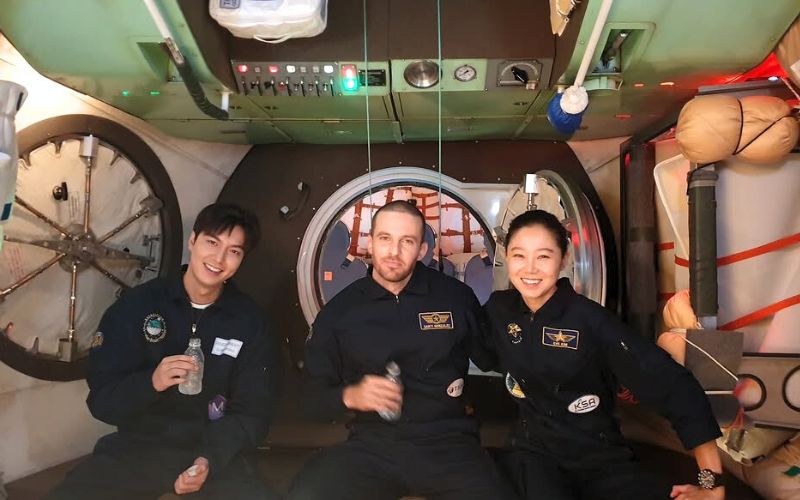
How was your experience working with Lee Min-ho, Gong Hyo-jin, and the rest of the amazing Korean cast?
It was an absolute privilege to work with such a talented and generous cast. Everyone made me feel welcome from the very beginning, and I was continually inspired by their professionalism and warmth. Despite the language barrier, we found a universal connection through storytelling, which transcended words. Korean culture’s balance of consideration and practicality made every interaction feel harmonious. I walked away from this experience not only as a better actor, but also as someone who has gained a richer understanding of Korean culture and its people.
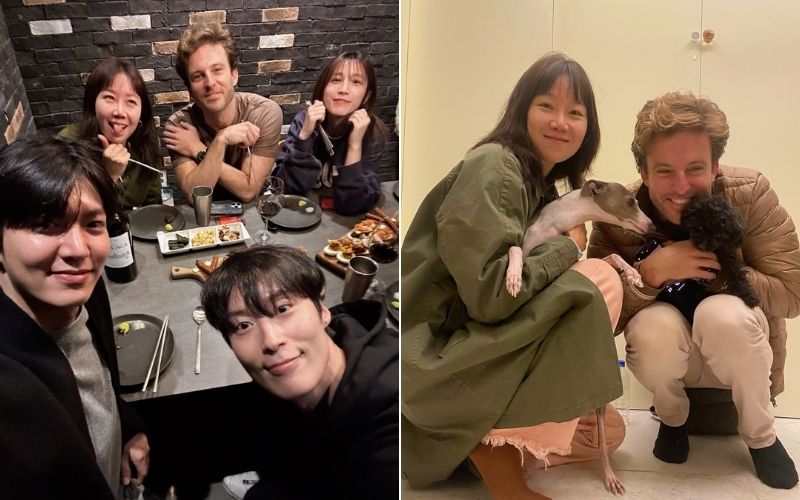
Can you share a memorable behind-the-scenes moment? What was the overall atmosphere on set like?
There are so many memorable moments, but one that stands out involves Gong Hyo-jin, who insisted I call her 누나 (Nuna), meaning “big sister,” on set. During one of our late-night shoots—one of many—she convinced me to take an MBTI test, which are wildly popular in Korea. To our surprise, we discovered that we share the same MBTI type. At the time, I didn’t give it much thought, but as we continued working together, it became clear that we had this almost empathic connection. She would often ask for something from the crew or the director just as I was about to make the same request. By the end of the shoot, I was genuinely convinced that she might just be my big sister after all. That sense of camaraderie and connection perfectly reflects the overall atmosphere on set—supportive, collaborative, and full of warmth.
During filming, Korea’s first astronaut, Dr. Soyeon-Yi, was on set with you. What was that experience like, and what kind of advice or insights did she share that helped you with your role?
Meeting Dr. Yi was both humbling and inspiring. She shared vivid descriptions of the physical and emotional realities of space travel, including how astronauts often feel a constant sensation of vertigo. That insight was invaluable in helping me portray Santiago’s disorientation and discomfort in zero gravity. Her presence reminded me of the extraordinary dedication and resilience required for space exploration, which added depth to my performance.
What is your favorite Korean word that you learned from the actors on set or while you were in Korea?
It’s hard to choose. As a funny anecdote, Oh Jeong-se taught me to say 사랑하고 배고파요. 돈 주세요. 천 원만! (Saranghago paegopayo. Don juseyo. Chon won man!), which translates to, “I love you, I’m hungry. Give me money, just 1,000 won!” He joked that I could survive in Korea with just that phrase, and honestly, he might not be wrong.
On a more meaningful note, one phrase that stuck with me during filming was 걱정하지 마세요 (Gogjonghaji maseyo), meaning “Don’t worry.” It’s such a comforting sentiment, and on set, it naturally paired with another frequently used phrase: 다시 갈게요 (Dasi galgeyo), meaning “Let’s go again” or “We’ll take it again.” Whenever something didn’t go perfectly, these two expressions worked in tandem—first easing any tension, then encouraging us to try again with renewed focus. I even started using it myself when I needed a redo, and it became a symbol of perseverance and humor on set.
Beyond these, I have a genuine soft spot for expressions surrounding food. Phrases like 맛있게 드세요 (Mas-iss-ge du-se-yo), meaning “Enjoy your meal,” and 잘 먹겠습니다 (Jal mo-get-sim-ni-da), a pre-meal expression of gratitude, are thoughtful rituals that perfectly reflect Korean culture’s warmth and hospitality. While eating, I would often enthusiastically say 정말 맛있다! (Jongmal mas-iss-da!), meaning “This is truly delicious!” What I find particularly endearing is how Korean culture’s love for food mirrors that of Spanish culture. Both cultures share a profound appreciation for communal dining and have a charming tradition of asking if someone has eaten as a way of expressing care. That similarity made me feel even more connected to my experiences in Korea and reminded me of the values I grew up with.
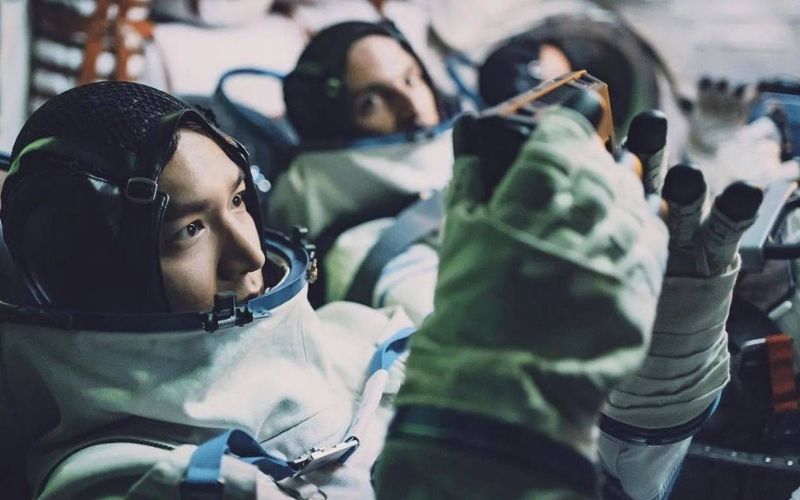
What was it like collaborating with director Park Shin-woo? How did his vision shape your performance?
Collaborating with Director Park Shin-woo was a transformative experience. His nuanced understanding of storytelling and his ability to blend realism with surrealism made him an exceptional leader. Having studied in Spain, he brought a unique appreciation for Spanish culture, which influenced the way Santiago was crafted as a dynamic and multidimensional character.
It is also important to recognize the contribution of writer Seo Sook-Hyang, who brought Santiago to life through her thoughtful and nuanced writing. The inclusion of my character in the story wasn’t just a gesture toward diversity—it was a meaningful choice that enriched the narrative and deepened the emotional connections between the characters. Together, Director Park’s vision and Seo Sook-Hyang’s writing created a space where every element of Santiago’s presence felt purposeful and authentic. Director Park’s vision allowed me to explore Santiago’s quirks and depth with clarity and confidence, helping me create a character I’m truly proud of.
With the show’s futuristic setting, what did you think of the special effects and CGI used to bring the spaceship environment to life?
The special effects and CGI were breathtaking. The production team’s meticulous attention to detail seamlessly blended practical sets with digital effects, creating a space environment that felt both immersive and believable. It was a visual feast that perfectly complemented the emotional depth of the story.
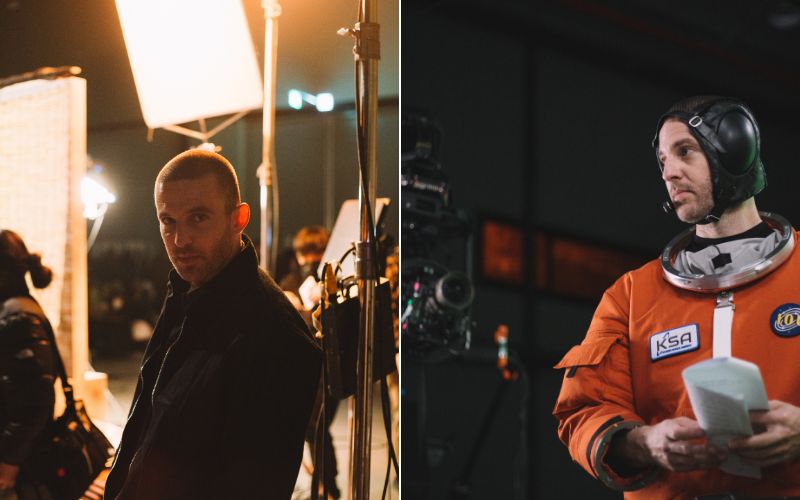
What was one of the most unexpected challenges you faced while filming "When the Stars Gossip"?
The zero-gravity scenes were a surprising challenge. Spending hours suspended on wires or in harnesses was physically exhausting and required immense focus to maintain a fluid, weightless movement. Beyond the physicality, I had to ensure my performance remained natural and authentic, even while my body ached from the constraints. It was a delicate balance, but overcoming that challenge was incredibly rewarding.
Did you find any personal connection to the themes of isolation and exploration as you prepared for Santiago’s journey?
Absolutely. Spending long hours on set, far from home, often mirrored Santiago’s experience of isolation in space. Like him, I found solace in the connections I formed with those around me. It is a poignant reminder that even in the most isolating circumstances, human connection can ground us and give us purpose.
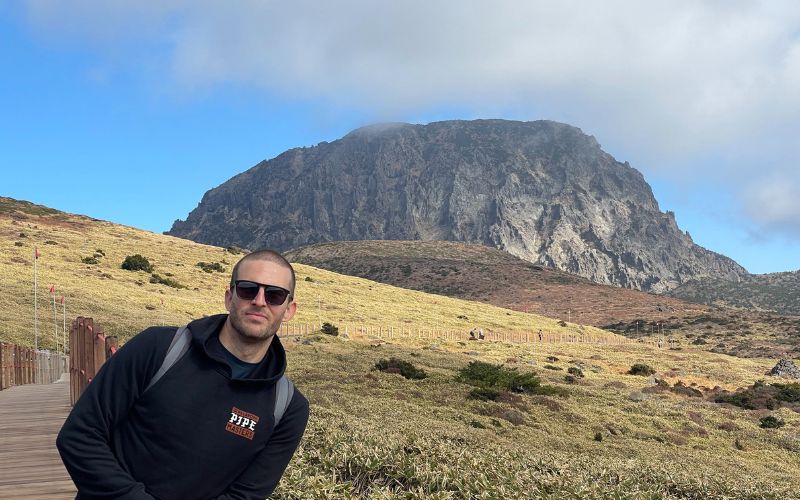
How do you think the series brings a fresh perspective to the K-Drama genre?
“When the Stars Gossip” combines the emotional resonance of K-dramas with the boundless imagination of science fiction. It’s a genre-defying story that explores universal themes like ambition, connection, and self-discovery while presenting them in a futuristic, visually stunning setting. This blend of heart and innovation pushes boundaries and offers a fresh perspective that I believe will captivate audiences worldwide.
What do you hope viewers take away from Santiago’s story and your portrayal of him?
I hope Santiago’s journey inspires viewers to dream boldly while reminding them of the importance of connection. Santiago learns that even the loftiest ambitions can feel hollow without meaningful relationships to ground us. If my portrayal encourages someone to explore their passions or embrace their vulnerabilities, it would be an incredible honor.
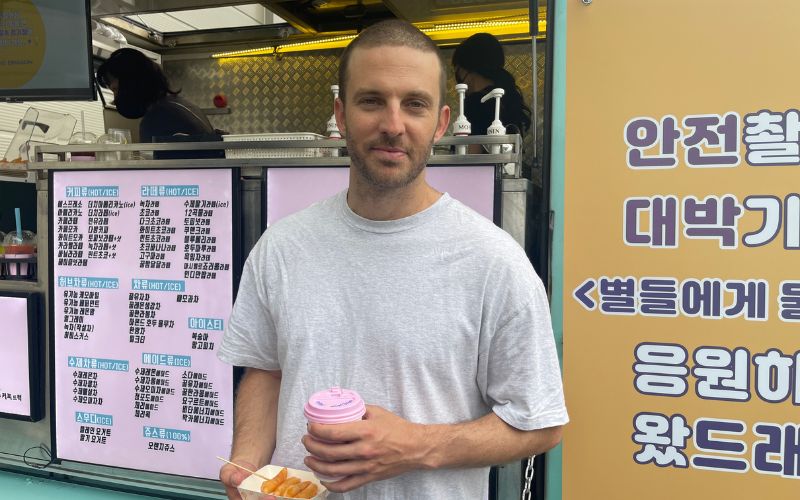
What would you say to those who aspire to become actors like you? Also, what advice would you give to actors who are already in the industry and dream of being part of a K-Drama?
For aspiring actors, I would say: Stay curious, stay resilient, and embrace the process of self-discovery. For those already in the industry dreaming of joining a K-drama, immerse yourself in the culture—learn the language, study the storytelling traditions, and approach every opportunity with humility and openness. K-dramas demand authenticity, and the more you connect with the culture, the more you can bring to your performance.
How about this article?
- Like12
- Support0
- Amazing9
- Sad0
- Curious0
- Insightful1


